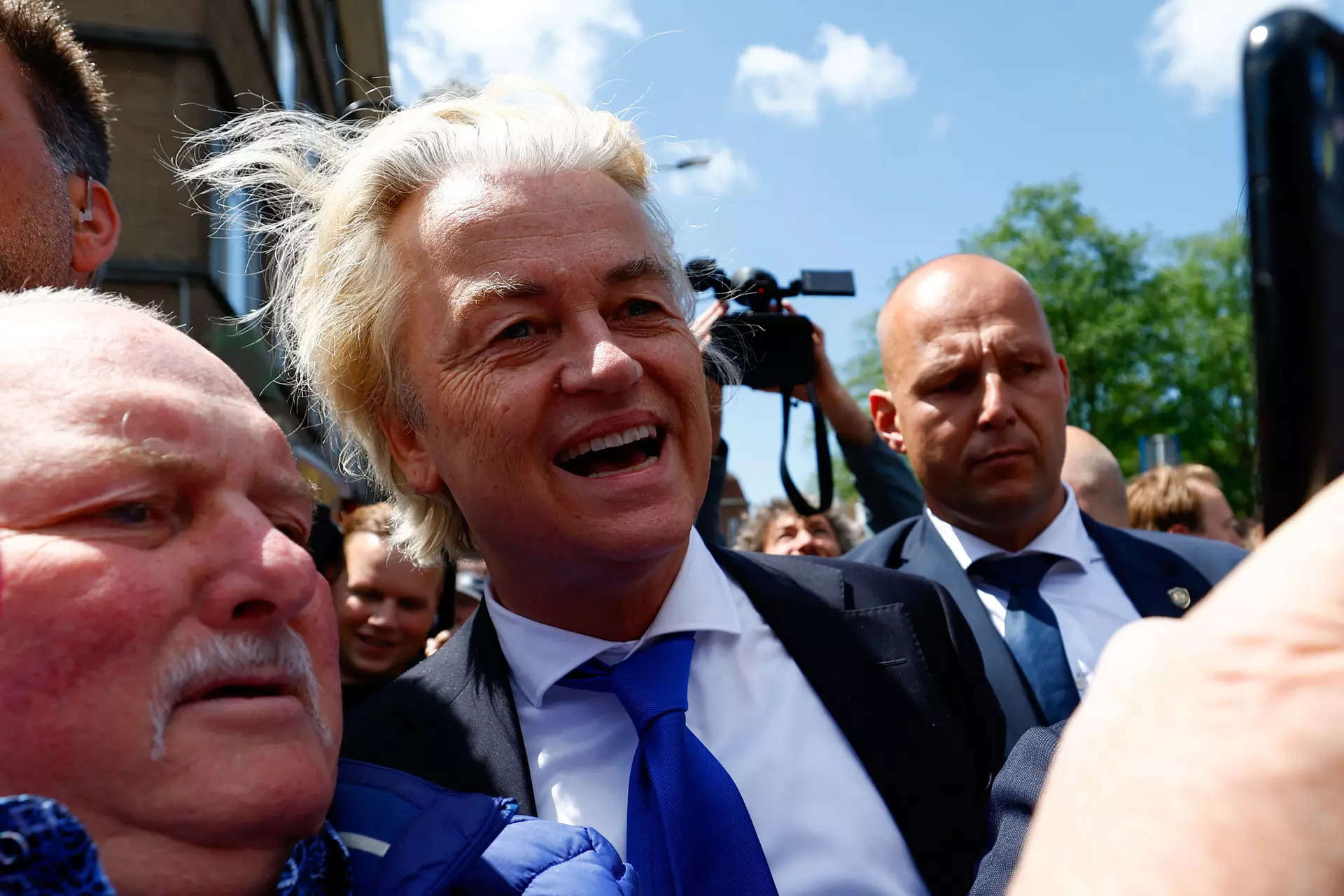The bulk of countries including powerhouses France and Germany will vote on Sunday, but the opening contest in The Netherlands will offer a glimpse of the strength of the far-right — whose predicted surge is the election’s top issue.
The Freedom Party (PVV) of Geert Wilders, the surprise winner of national elections last November, is also projected to top the EU polls. Though it dropped its pledge of a “Nexit” referendum on leaving the bloc, the PVV’s manifesto remains fiercely eurosceptic.
The Netherlands is just one of a long list of countries where nationalist, far-right and other eurosceptic forces are expected to come out on top in the EU vote.
Polls suggest the hard-right could grab around a quarter of the new parliament’s 720 seats — significant enough to sway EU policy.The results could also impact Brussels‘ approach to climate change, relations with the United States and China, support for Ukraine, EU enlargement, and adapting to tech and AI innovations.After the dust settles, the weightings of the emerging political groupings will help EU leaders decide who takes the bloc’s top institutional jobs, including at the European Commission.
Current commission chief Ursula von der Leyen, a German polyglot, is trying for a second term and seen as the frontrunner, though diplomats caution that is not a given.
‘Troubled times’
If tapped by member states, von der Leyen will still need to lock in support from parliament — or it will be back to square one and potentially months before the EU’s next boss is known.
“These are troubled times, and there’s a need to move fast,” said Sebastien Maillard, of French think tank the Jacques Delors Institute — warning of the risks of a leadership vacuum.
“What’s at stake is Europe’s ability to embody democracy, to find compromises, to stay sufficiently united… faced with (Russia’s Vladimir) Putin, faced with China, faced with the future American president,” said Maillard.
The prospect of Donald Trump triumphing in November US elections has focused European minds — but also given a boost to parties seeing alignment with Trump’s nationalist tenets.
Marine Le Pen’s National Rally party in France is predicted to come out on top, as is Italian premier Giorgia Meloni’s post-fascist Brothers of Italy, and Hungarian Prime Minister Viktor Orban’s far-right Fidesz party.
In Germany, the extreme-right AfD is polling second, after the opposition conservatives. In Austria, the far-right Freedom Party looks on track for victory.
Parliament swayed?
In a number of countries, voters see European elections chiefly as a way to send messages to their own government — over everything from the cost of living, to law and order concerns, or the popularity of a national leader.
Turnout has historically been low — but the last polls in 2019 saw a significant uptick, to 50.7 percent, and signs are the upward trend will continue.
This time, according to polling data compiled by Politico, von der Leyen’s conservative European People’s Party (EPP) is on a path to get the most parliament seats — 172.
That accounts for less than a quarter of the chamber, meaning a coalition will be needed to pass legislation.
Most political analysts believe the EPP’s existing alliance with the leftist Socialists and Democrats, predicted to win 143 seats, and the centrist Renew Group, eyeing 75, will carry over.
But there is speculation the EPP might instead look to work with far-right lawmakers, driving forward a much more rightwing agenda for Europe.
Von der Leyen has been courting Meloni, whose support she will need if she is to clinch a second commission term.
For Nathalie Brack, professor of political science at Brussels’ ULB university, what stands out about this election is not so much the surge of the far-right, but how far it has been “normalised.”
“Their ideas are much more on the agenda, and the idea of cooperating with parts of the radical right has become almost normal — since coalitions with the far-right already exist at the national level,” she told AFP.
France’s Le Pen is also making overtures towards turning Europe’s far-right — currently splintered, and split over the question of supporting Ukraine — into a supergroup in the parliament.










